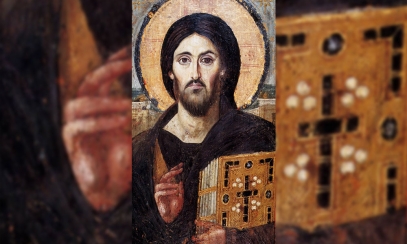
Via Fidelis: ‘You will be my witnesses’ Part 2: What we say
“Preach the Gospel at all times; if necessary use words.” We frequently hear or repeat these famous words attributed to St. Francis of Assisi — though we have no record of him ever saying them. Yet, we tend to use them in a way that undermines their power and significance.
“Preach the Gospel at all times; if necessary use words.” We frequently hear or repeat these famous words attributed to St. Francis of Assisi — though we have no record of him ever saying them. Yet, we tend to use them in a way that undermines their power and significance.
The basic sentiment of this phrase is to communicate to us that the proclamation of the Gospel is not meant to be a bunch of empty words. Rather, the Gospel is meant to be embodied in our disposition and action. Unfortunately, most of the time we use this phrase to excuse ourselves from actually talking about the Good News, assuring ourselves that our actions speak for themselves.
Sometimes, we forget that words are very necessary.
We have been journeying together along the Via Fidelis for nearly a year. We have spent a good part of this year coming to a deeper understanding of the kerygma, the basic message of salvation offered to us in Christ. After reflecting on many key pieces of the Gospel message, we turned our attention to the act of proclamation — what we do with that message.
We’ve discussed the complete witness that we must give to the Gospel. This witness flows from dedicating all we have and are to the Lord. We cited the example of the martyrs of the Church as models of complete devotion. But, we must all live for Christ. And living for him should show throughout our lives and actions.
However, sometimes words are necessary: several aspects of our verbal proclamation of Christ Jesus are important.
First, in consistency with our need to embody the Gospel, our words should reflect the kind of God we believe in. They should be Christ-like. Our words should always recognize human dignity, avoid malice and scandal, and reflect the love with which God has loved us. Gestures and acts of love are essential, but often the significance of those acts needs to be put into words. The combination of word and action makes God’s love clear. It shows the intrinsic connection between our thoughts and our actions.
In addition to this powerful combo, the Good News itself is something that demands explicit proclamation. It is an essential part of carrying out our baptismal calling to mission, one where we must tell people who Jesus is and why he is important. This involves sharing some of those main points of the proclamation of salvation, the kerygma.
As Christians, it is important for us to have an understanding of this truth and to be able to impart that understanding to others. We must strive to grasp the essence of our faith so that we can share that faith.
The message we are called to proclaim is not a series of abstract concepts or a list of past events. We are called to proclaim the significance of all that God has done for our salvation. This year, as we looked at the elements that make up the kerygma, you may recall that what emerged was a story. And it is not just another story — it is the story. Salvation history is a story that involves each and every one of us. Our individual stories are bound up and united with the one story of salvation.
With this in mind, when we are talking about the Good News, if we forget to mention why this is Good News for us, we are missing the point. Our witness must include not only the good things that God has done throughout history, but also the good things that God is doing right now in our lives. This is why the Good News is still news. God is still at work in the world and in our lives.
One of the biggest barriers to proclaiming the faith is the mental hurdle of thinking that we have to be able to give a systematic account of salvation history or a perfect presentation of our lives to be effective witnesses. Nothing could be further from the truth.
What we are called to proclaim is the Good News as it has affected and changed our lives. We need to share why we believe and the difference that makes to us. It is actually the authenticity of our witness that is most important. This authenticity needs to be shared outwardly and clearly.
Sometimes words are necessary.
Michael Martocchio, Ph.D., is the secretary of discipleship and the director of the Office of Catechesis and Christian Initiation. Email him at mmartocchio@charlestondiocese.org.



